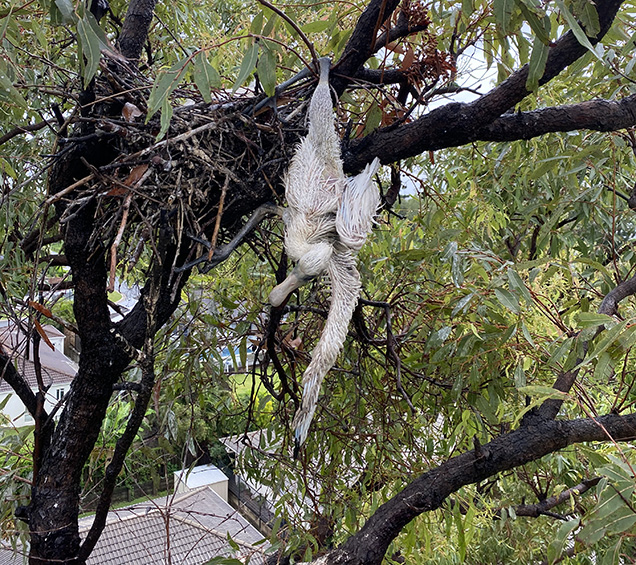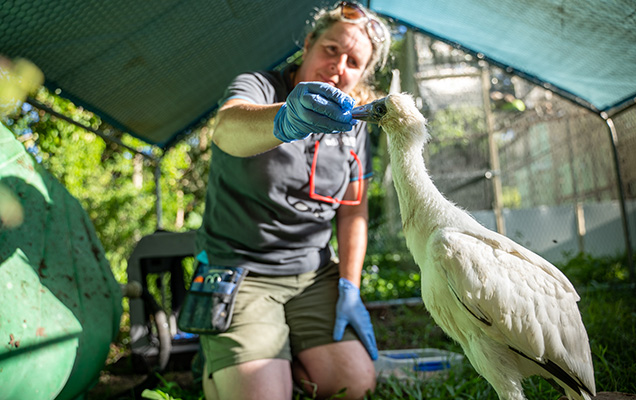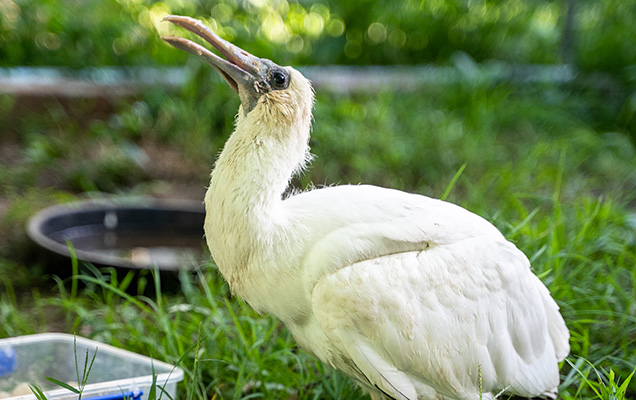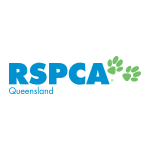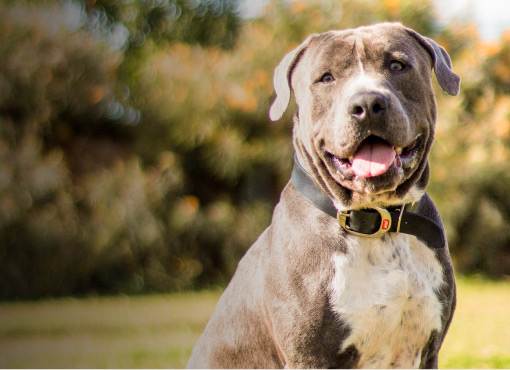RSPCA Rescue Officer Sam headed out to attend the call for help about a bird found dangling in a tree in distress at Nudgee.
The young Spoonbill was 30 metres up and lucky to have been spotted in time! Upside down and tangled, the Spoonbill’s rescue required more than just a ladder. Rescue Officer Sam called in the local Fire Department for help.
Animal Rescues are certainly much easier with a cherry picker! Sam headed up with the firies in the cherry picker and plucked this poor Spoonbill to safety.
Tired and wet, Queenie was dried off by Sam and kept warm on the way back to the RSPCA Wildlife Hospital.
Thankfully, Queenie didn’t suffer any serious injuries from her predicament, but she was pretty exhausted and dehydrated! After a thorough vet check at the RSPCA, in order for Queenie to have the best chance at recovery, she was off to rest and recuperate with a wildlife carer.
We popped out to visit wildlife carer Tara who was looking after Queenie, to see how she was getting on almost a month after her rescue. Tara has been a wildlife carer for 4 years and is currently the waterbirds species coordinator for Wildcare. Now living in the Scenic Rim, Tara has enough space to care for around 40 animals at a time!
We’re pleased to say that Queenie is recovering very well. In her own enclosure in a nice spot under the trees, she certainly looked like royalty with the afternoon sun beaming down on her. Tara is impressed with her progress, “She couldn't stand up three days ago. It’s great to see her perching.”
At just three weeks old when she first came into care, Queenie could only be fed through a tube so it was a big job for Tara to ensure she’d put on weight after such a stressful start to life. Tara said that after just a week and a half she had already gained 250 grams, so she was in good hands!
Tara explains the discipline required in caring for waterbirds. To avoid imprinting, you need to minimise human contact, as hard as that may be. “The trouble is, when they come in so young, they humanise. Normally we pair them up, but spoonbills don’t come in very often. So I just have to minimise contact.”
Spoonbills require a soft release. This means they need a property with a dam and an outdoor enclosure, ideally with other spoonbills, so they can learn how to make it on their own before they get released.
“And it doesn’t stop,” Tara remarks as she fields another call about a rescue during our visit.
A purple swamp hen was brought to Tara midway through Queenie’s dinner time, so she’s now off to the local Canungra vet before they close for a veterinary checkup. Tara also has another animal that’s been rescued and ready for collection this evening, so it’s never a dull moment as a wildlife carer!
It’s thanks to amazing people like Tara that birds like Queenie get a better chance at rehabilitation and eventual release. Wildlife carers play a vital part in helping us manage the 26,000 native animals that come through our RSPCA Wildlife Hospital every year. Your support means that once Queenie is old and strong enough, she’ll be making her own way - fishing in wild waters!


